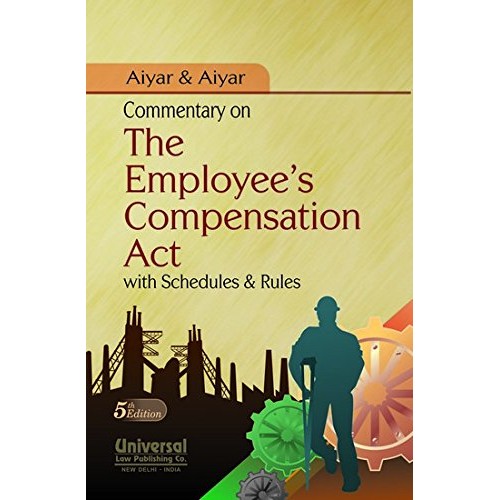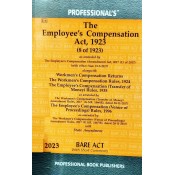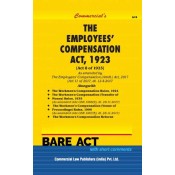Workmen`s Compensation Act, 1923, has been replaced with the name Employee`s Compensation Act and stipulates enhanced compensation limits, full medical expenses reimbursement, three months time limit fixed for disposal of cases etc., and makes it applicable to both casuals and clericals. This Centrally enacted law aims to compensate victims, minimize accident related litigations, reduce on-the-job accidents and provide treatment and/or rehabilitation where applicable.
Universal's Commentary on Employee's Compensation Act with Schedules & Rules by Aiyar & Aiyar
- Publisher: Universal Law Publishing Co.
- Book Code: 9789350350706
- Availability: Out Of Stock
-
Rs950.00
Related Books
Professional's Employee's Compensation Act, 1923 Bare Act 2023
Please Note: Price of the book includes Delivery Charge Rs. 60...
Rs220.00
Commercial's Employee's Compensation Act, 1923 Bare Act 2023
Please Note: Price of the book includes Delivery Charge Rs. 60...
Rs210.00
Law & Justice Publishing Co's Employee's Compensation Act, 1923 Bare Act
Please Note: Price of the book includes Delivery Charge Rs. 80...
Rs230.00
Tags: Employee's Compensation Act, Workmen Compensation Act, Universal Law Publishing


![Kharbanda & Kharbanda's Commentaries on Employee's Compensation Act, 1923 [HB] by Law Publishing House Kharbanda & Kharbanda's Commentaries on Employee's Compensation Act, 1923 [HB] by Law Publishing House](https://law-all.com/image/cache/catalog/data/Book Images/Law Publishing House/2019/9788189639297-175x175.jpg)


